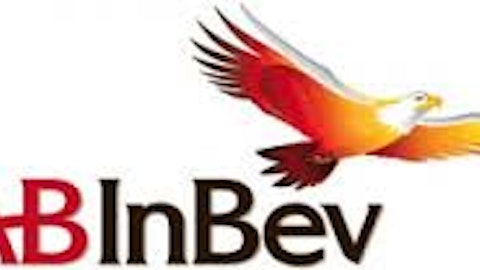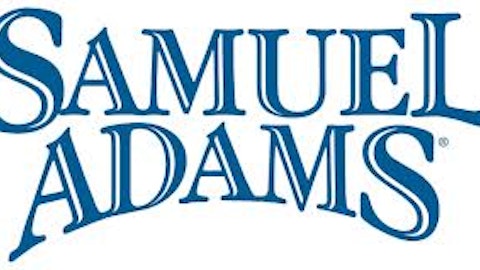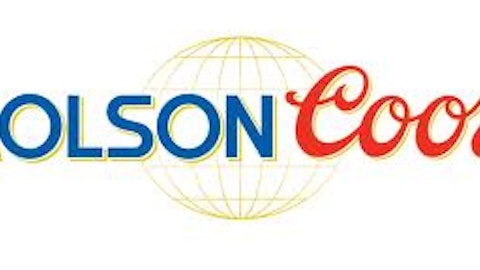How about Boston Beer Co Inc (NYSE:SAM) and Molson Coors?
Compared to its peers including Boston Beer Co Inc (NYSE:SAM) and Molson Coors Brewing Company (NYSE:TAP), AB InBev’s valuation stays in between. Boston Beer Co Inc (NYSE:SAM) is the most expensively valued among the three, trading at $201.50 per share, with a total market cap of more than $2.6 billion. The market values the company at as much as 35.4 times its forward earnings. Recently, Boston Beer Co Inc (NYSE:SAM) also experienced nearly 12.5% in one trading day, due to its impressive second quarter results. Its net income jumped as much as 37% from last year, thanks to the core shipment growth of 21%. Martin Roper, the company’s CEO commented that the growth in the second quarter this year was due to Samuel Adams beers and the improved distribution of Angry Orchard. With the recent strong earnings results, the company increased its earnings outlook, from the range of $4.70-$5.10 per share to a range of $5.10 – $5.40 per share. The full year EPS guidance was higher than analysts estimate at $4.98 per share. Boston Beer Co Inc (NYSE:SAM) has not paid any dividends to shareholders yet.
Molson Coors Brewing Company (NYSE:TAP) has the cheapest valuation of the trio. It is trading at $50.90 per share, with the total market cap of $9.30 billion. The market values Molson Coors at more than 12 times its forward earnings. Molson Coors yields 2.60% at the current price. In the past five years, Molson Coors has improved its operating results a lot. The company reported that it generated nearly $750 million in cost savings and synergies since 2008. The free cash flow surged 70%, from $508 million in 2008 to $865 million in 2012. Molson Coors also managed to grow the after-tax profit at an annualized rate of 9%.
Looking forward, Molson Coors will focus on four main pillars including (1) delivering value added innovation, (2) investing behind power brands, (3) increasing share in “above premium” beer segment and (4) cost savings and delivering commercial excellence. Molson Coors has a historical record of cost savings. In the past eight years, the company has managed to save around $1.1 billion in cost. In the next five years, the company expects to save around $40-$60 million, including Central Europe deal synergies. Molson Coors also plans to restructure the business, including the international segment, reducing overhead expenses, executing global procurement and global standardization.
My Foolish take
Despite the expensive valuation, AB InBev seems to deliver shareholders a lot more when it completes the integration of Mexico’s Grupo Modelo. According to Barron’s, the company also benefited from its global domination, thanks to the Modelo acquisition and the success of turning Budweiser into the premiere brand in China. Analysts expect the company to grow its EPS by 15%, from this year’s forecast of $4.81 per share to around $5.54 per share.
Dividend stocks can make you rich. It’s as simple as that. While they don’t garner the notoriety of high-flying growth stocks, they’re also less likely to crash and burn. And over the long term, the compounding effect of the quarterly payouts, as well as their growth, adds up faster than most investors imagine. With this in mind, our analysts sat down to identify the absolute best of the best when it comes to rock-solid dividend stocks, drawing up a list in this free report of nine that fit the bill.
The article Is This Beer Behemoth Drinking up All the Industry Profits? originally appeared on Fool.com and is written by Anh HOANG.
Anh HOANG has no position in any stocks mentioned. The Motley Fool recommends Boston Beer and Molson Coors Brewing Company. The Motley Fool owns shares of Boston Beer. Anh is a member of The Motley Fool Blog Network — entries represent the personal opinion of the blogger and are not formally edited.
Copyright © 1995 – 2013 The Motley Fool, LLC. All rights reserved. The Motley Fool has a disclosure policy.


